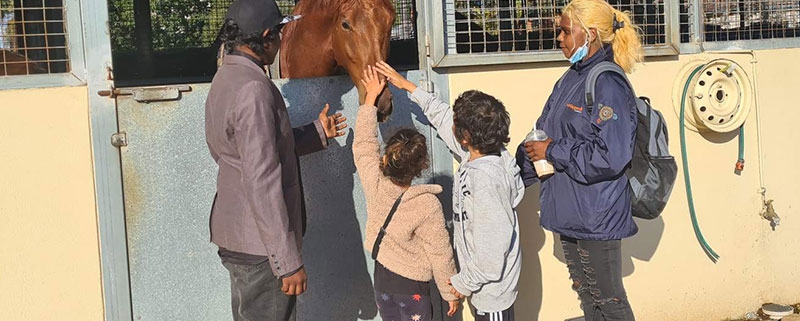by Lisa McIntosh
Celestine Rowe believes family is ‘the most important thing’. And that’s why the mum of four is thrilled that her children are growing up connected to their wider family and their country in Central Australia’s Western Desert region.
A Pintupi-Luritja woman from Papunya northwest of Alice Springs, Celestine spent her childhood with a foster family in Adelaide from 12 weeks of age. She was born prematurely and was unwell as a baby, which meant frequent stays in hospital and led to her being placed in foster care in South Australia.
While she said her foster family was kind to her, she felt something was missing in her life. By the time she reached her mid-teens, Celestine moved back to the Northern Territory and set about reconnecting with her biological family, including her mum. Her father had died when she was young. She also reconnected with her Lutheran heritage and today worships at St Paul’s Ferryden Park, which incorporates Adelaide Aboriginal Lutheran Fellowship.
‘I was missing a sense of belonging within the family – I grew up without my family but I knew that they were there’, says Celestine, who works as a stable hand at Morphettville in suburban Adelaide. ‘I just had a big hole there. I was feeling lost, I felt I had no family, and I don’t want my kids to be feeling the same thing that I did growing up.’
Around the time she returned to the Northern Territory as a teen, Celestine lived at the Alice Springs Youth Accommodation Support Service, where she met celebrated First Nations poet Ali Cobby Eckermann, who became her mentor and carer. Thanks to Ali, Celestine began writing poetry and, since the age of 16, she has been performing her work around Australia.
Celestine has one brother and one sister, but her grandfather had 12 children, so she has many aunts, uncles and cousins and a large extended family. Despite being based in Adelaide for work reasons, Celestine and her children, aged 6, 7, 13 and 15, visit and spend time with their Central Australian family regularly.
‘I think the connection, the blood connection is a lot stronger for the First Nations mob’, she says. ‘For mob that’ve been taken away or removed, their friends are close considered like family. The family’s the most important thing because it comes back to who we are and where we’re from, and it’s our connection.’
Celestine’s Christian faith also informs her views on family and why God wants us as part of his family. ‘I believe that’s so we don’t feel left out and so we feel like we belong to something.’




